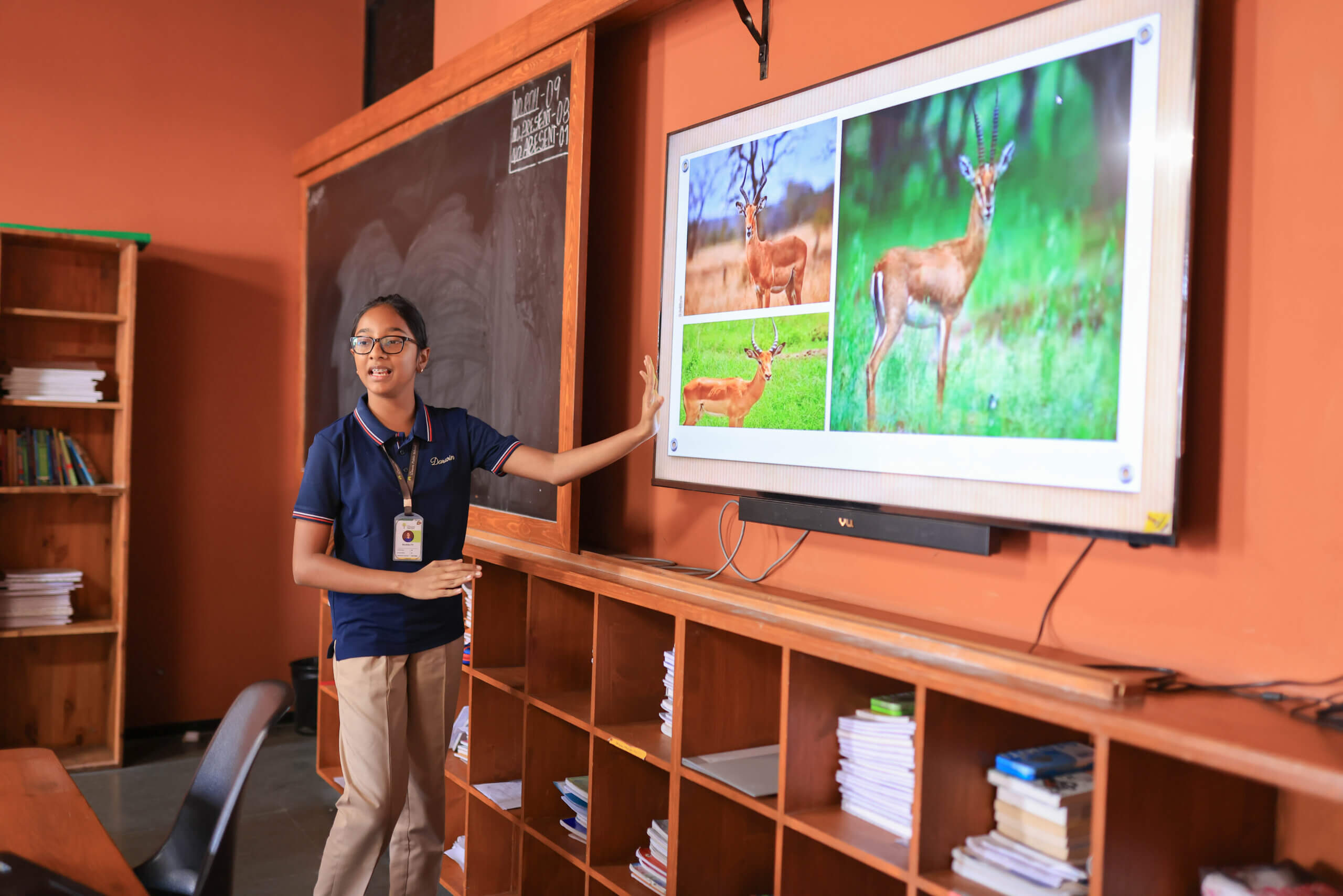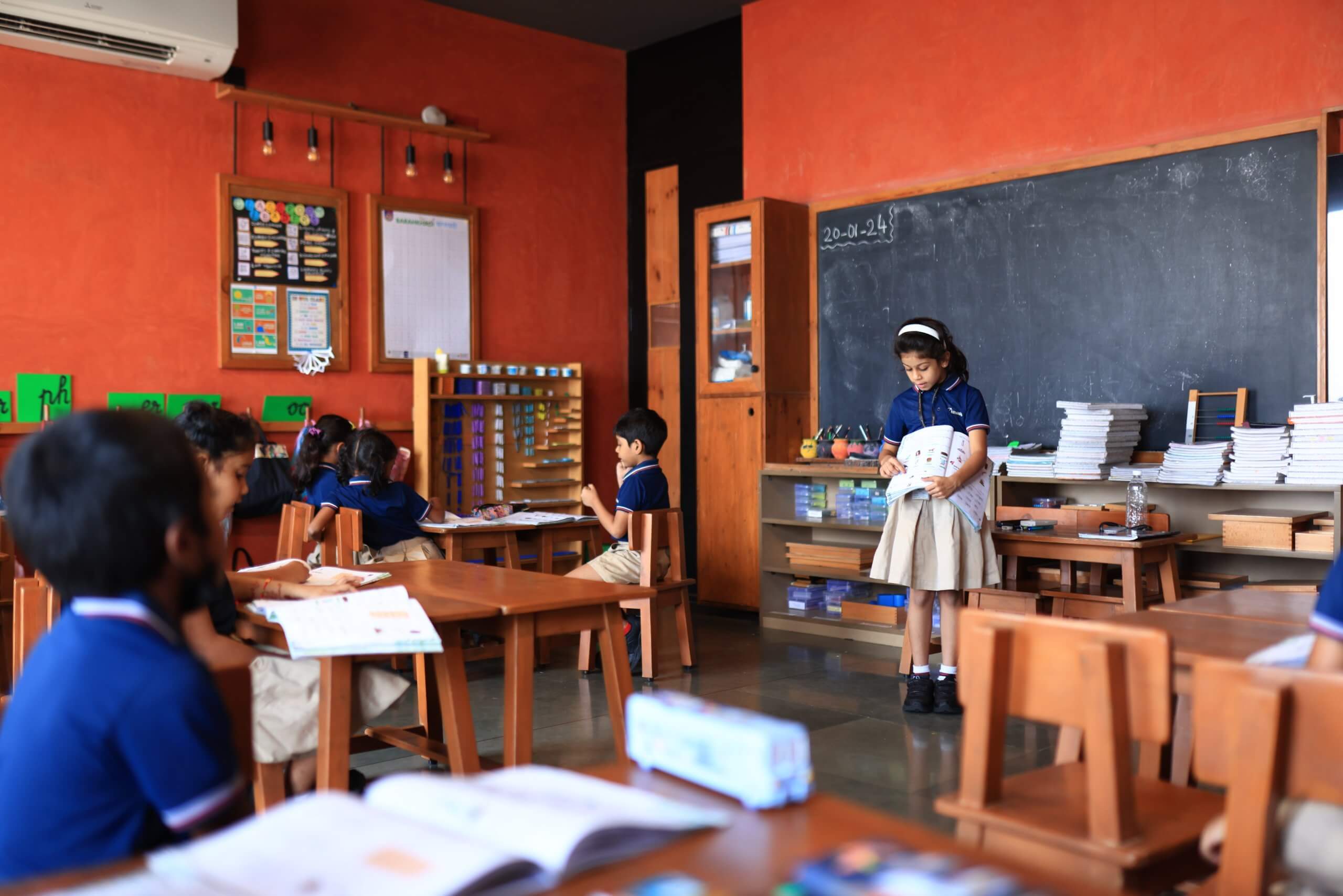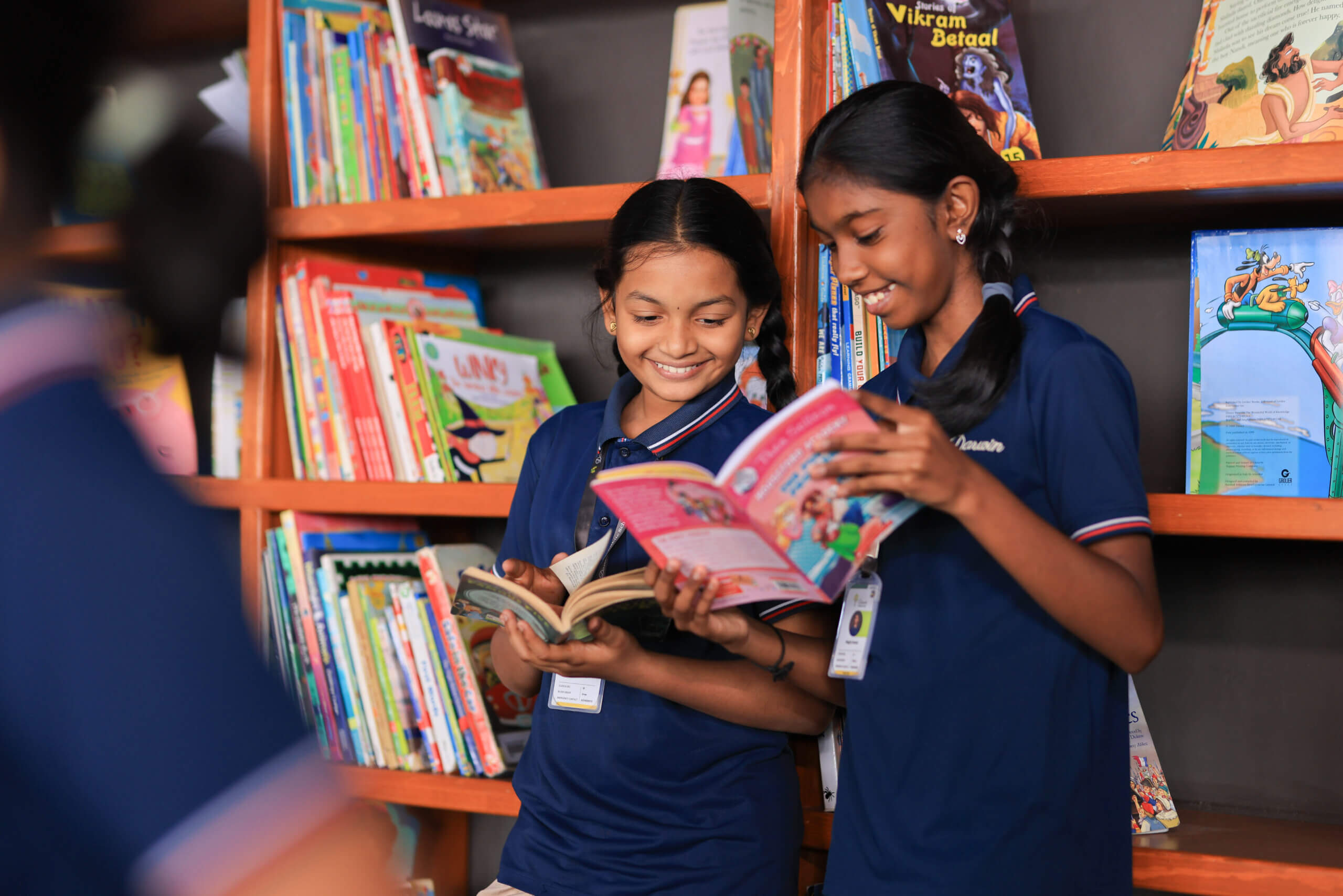
Our curricula are thoughtfully designed to cater to the diverse needs of students from preschool through high school, combining the best of the Montessori and ICSE educational approaches. In the early years, we embrace the Montessori method to foster independence, curiosity, and hands-on learning. As students progress to primary school and beyond, the ICSE curriculum takes center stage, offering a rigorous yet balanced education that equips them with the skills, knowledge, and confidence
needed to excel in an ever-evolving world.
ICSE Curriculum
At Darwin Public School, the ICSE curriculum offers a well-rounded and structured educational experience, starting from Grade 1. It blends academic rigor with creative and critical thinking, ensuring students’ personal growth alongside academic success.
A key feature is its holistic approach, giving equal importance to subjects like Math, Science, languages, arts, and humanities. This encourages a balanced and inclusive education that fosters intellectual and emotional development.
The curriculum promotes independent learning, with teachers providing guidance to encourage self-assessment and critical thinking. It emphasizes practical knowledge and analytical skills, preparing students for real-world applications. Additionally, the ICSE framework supports both physical and mental well-being, integrating activities that promote emotional resilience and fitness.
Communication skills are also a key focus, helping students articulate their thoughts effectively in collaborative environments. With its global content and methodologies, the ICSE curriculum is widely recognized, equipping students for higher education both nationally and internationally.

Difference Between CBSE and ICSE Board

Holistic Assessment Beyond Standardized Testing
We believe that assessments are only a part of the learning process, not the defining measure of a student’s capabilities. Standardized tests should not be the sole way to gauge skills and understanding.
We reject the “teaching to the test” approach, where educators often focus on preparing students only for exams, relying heavily on rote memorization at the cost of true learning.
Instead, our educational philosophy, even at the higher secondary level, emphasizes self-awareness, realistic goal-setting, and continuous reflection on personal growth.
We encourage students to reflect on their learning journey, acknowledging both achievements and setbacks. This holistic approach honors each student’s life experiences and focuses on the learning derived from both successes and challenges.
At Darwin, we view learning as a lifelong process, and we believe that self-reflection is the foundation for personal development, helping students grow into strong, resilient adults.
ICSE Curriculum & Syllabus for Students
The ICSE curriculum is thoughtfully structured to provide a comprehensive education across various subjects, ensuring that students develop a well-rounded knowledge base and practical skills. The curriculum is divided into three key groups, each catering to different areas of learning:
For their Class 10 examinations, ICSE students must select seven subjects from these three groups. Out of these, four subjects are compulsory, while three are chosen based on individual preferences.
The CISCE conducts comprehensive exams for key subjects like English, Mathematics, and Social Studies, ensuring a standard assessment of students’ knowledge and skills.
Discover Darwin’s World of Learning
